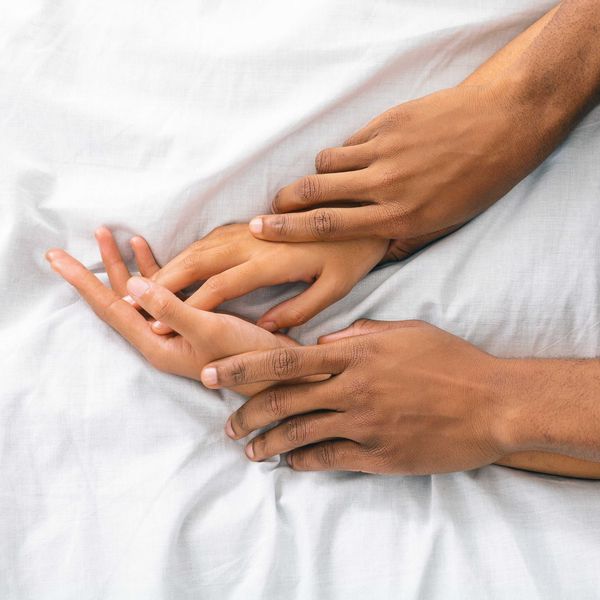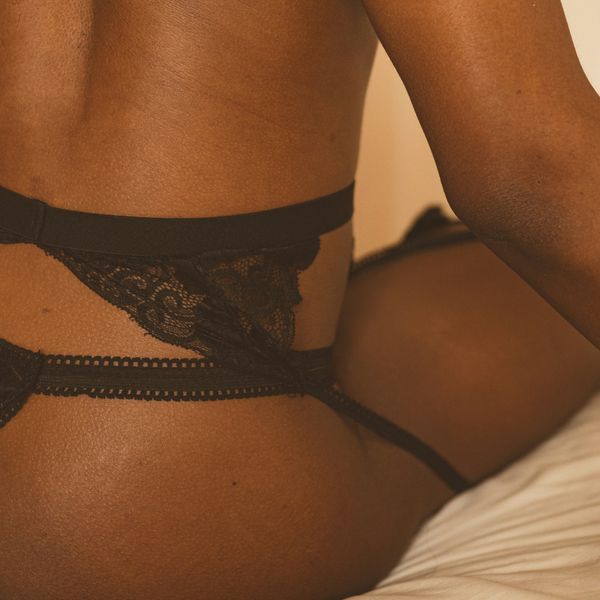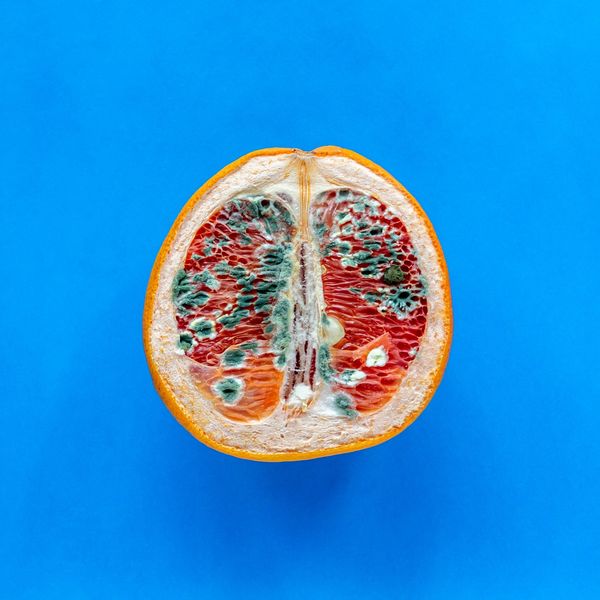Feminine hygiene is an interesting topic. The main reason why I say that is because some people can’t actually agree on what it is. While some say that it strictly has to do with what’s going on with our vagina (and vulva) when we’re on our cycle, others say that it has to do with “all things considered” as it relates to cleanliness — and to a certain degree health — down below.
To keep everyone as happy as possible (this time…LOL), I decided to share some tips that will “scratch the itch” on both sides of the fence by providing some all-natural ways to take care of “her” by way of going the essential oils route.
For the record, these aren’t oils that I’ve merely read about before. These are the ones that I’ve tried out myself and can personally vouch for. Ones that, so long as you dilute them first (a few drops of oil in eight ounces of distilled water can make it a great vaginal wash or spray) and take the “less is more” (along with the, if your symptoms don’t go away, please see your doctor as soon as possible) approach, you can end up feeling really good and super fresh on a monthly basis. Ready?
1. Oregano Oil for Vaginal Odor
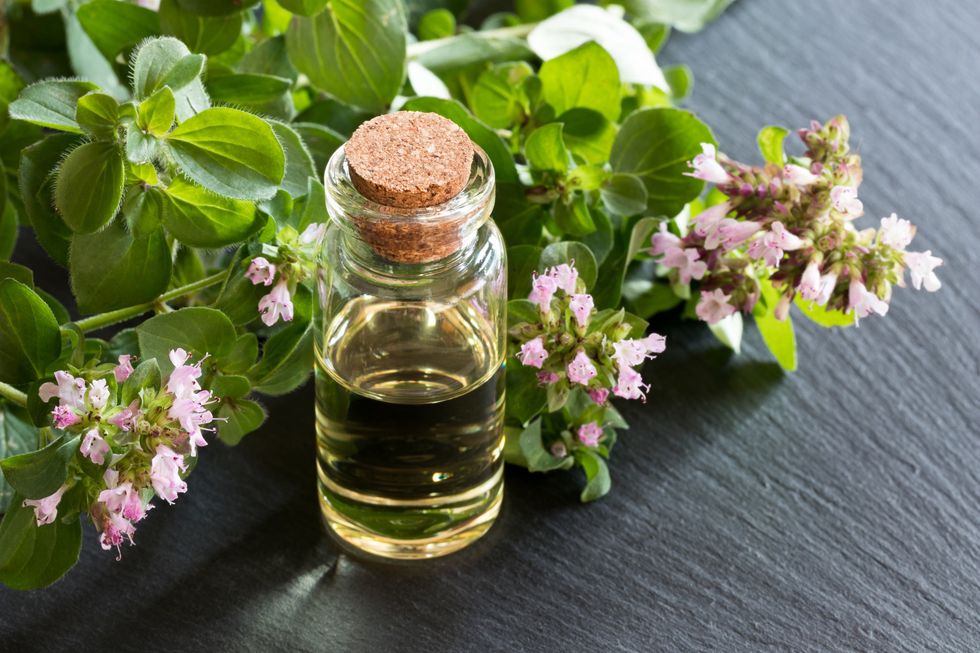
Getty Images
If you’re looking for the kind of oil that is powerful when it comes to the antioxidants that are in it as well as its anti-inflammatory properties, oregano oil is that one. Some people use it to improve their gut health. Others rely on it to lower their cholesterol levels. Word on the street is it can also aid in helping to shed some pounds.
What makes it ideal when it comes to vaginal health is, not only does it contain potential antibacterial compounds that can help to heal a yeast infection, it can help to get rid of vaginal odor too.
2. Rose Oil Reduces Vaginal Inflammation
Let me tell it, everyone should have at least one bottle of rose oil in their house. There are plenty of science-based studies to back the fact that it’s great when it comes to treating symptoms that are related to depression and anxiety, sexual dysfunction, and stress. Rose oil is also awesome when it comes to reducing pain — this includes any that is period-related.
However, because it’s also an oil that is loaded with antibacterial and antifungal properties, if the blood and/or discharge that you’re dealing with due to your cycle is irritating your vulva (the skin outside of your vagina), rose oil can help to soothe the irritation and inflammation (especially if you’re someone who mostly wears pads).
3. Emu Oil to Soothe Vulvar Skin
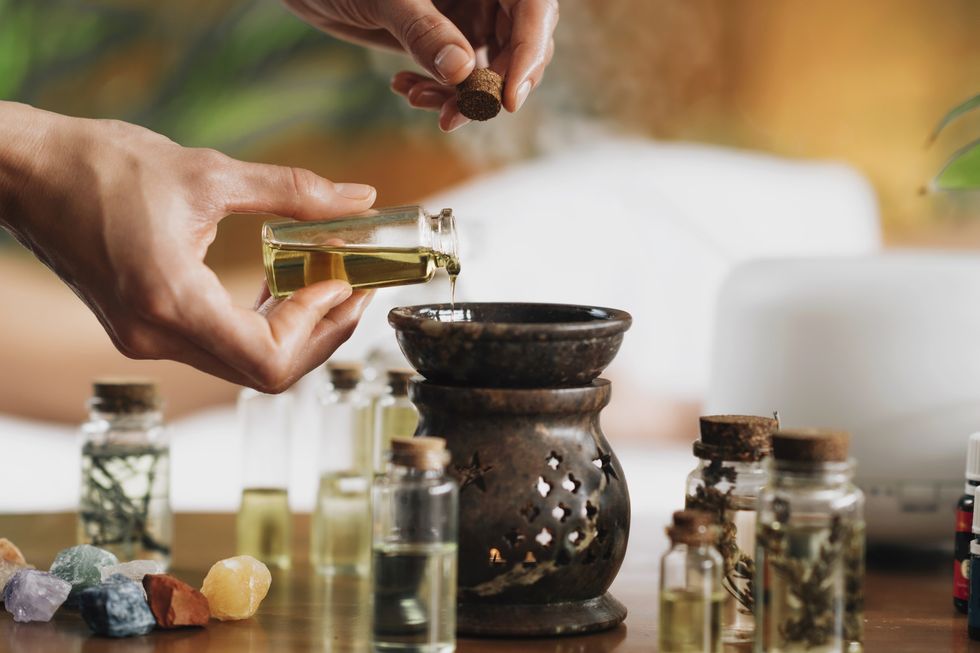
Getty Images
Speaking of oils that soothe — emu oil is another gem. From a beauty standpoint, it will help to deeply hydrate your skin, slow down the signs of aging (because Black CAN crack if you’re not careful), decrease the appearance of acne scars, and lighten age spots. If you’re a new mom, another bonus when it comes to this particular oil is it can make your nipples feel less irritated if you happen to be breastfeeding.
As far as your vulvar skin goes, emu oil provides the same benefits to it that it does to the rest of your body — and since moisturized skin is less irritated, it definitely gives a calming effect. Also, since it helps to stimulate collagen production in your system, it can help your vulvar skin to also appear plumper and more youthful-looking over time.
4. Clove Oil Decreases Period-Related Discomfort
I’m gonna tell you right here and right now that if you have a toothache, run out and get some clove oil. It will help to deaden the pain almost immediately. Aside from that, the properties of clove are associated with relieving respiratory conditions, bringing relief to skin that suffers from chronic itching and it can help to decrease muscular pain.
And since your uterus is a muscular organ that contracts in order to shed its lining when you’re on your cycle, that’s why it can be beneficial for you when you’ve got cramps and abdominal discomfort. Simply mix a few drops with your favorite carrier oil, warm it up for a few seconds in the microwave, and then give the lower part of your tummy a nice massage with the oil. You should feel your cramps easing up within 20 minutes or so.
5. Frankincense Oil Stimulates Blood Flow to Reproductive Organs
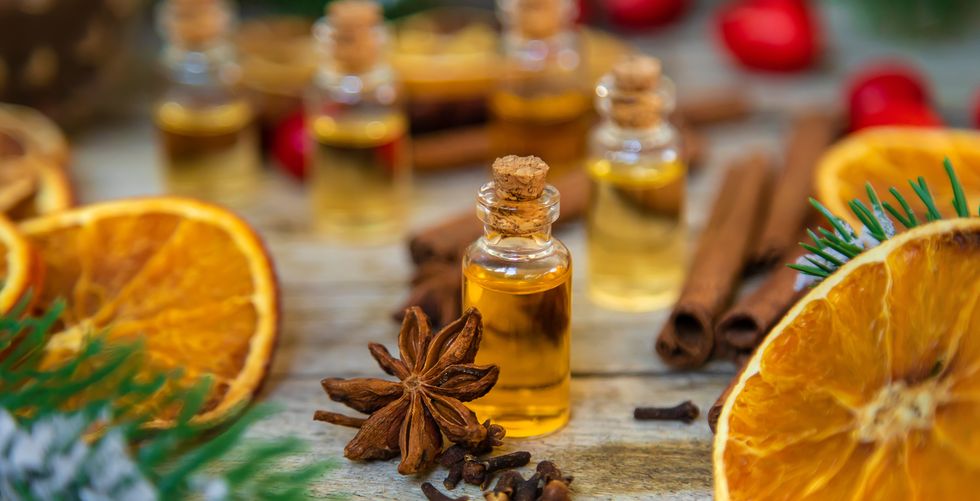
Getty Images
This essential oil is bomb on a few different levels. It helps to reduce stress. It can put you in a better mood. Its powerful astringent properties are great at killing fungi and bacteria. It helps to fade stretch marks and surgery scars. It can also help you to get a good night’s rest thanks to its ability to open up your nasal passages and regulate your body temperature.
When you’re on your period, your body will adore it because not only can it help to balance out your hormone levels, but it also increases blood flow to your reproductive organs which can assist with shortening the time of your cycle and make your cramps less intense until your period ends.
6. Rosemary Oil for Vaginal Infections
My skin adores some rosemary oil. Ever since I’ve been applying it to my skin at night, it has evened out my complexion, helped to keep period pimples at bay, and given me a natural glow. It’s also been a reliable oil when it comes to sealing the ends of my hair. In fact, it has a pretty solid reputation for helping to restore hair loss if you're consistent with using it.
If it seems like clockwork that you end up experiencing some sort of vaginal infection when you’re on or right after you come off of your cycle, that’s because it could be causing an imbalance of the yeast and bacteria that’s naturally inside of your vagina during that time of the month. The anti-inflammatory and antibacterial properties in the oil can help to heal these kinds of vaginal infections. Not only that but some studies say that rosemary oil can speed up the healing process of trichomoniasis too (speak with your doctor about that one, though).
7. Lavender Oil for Bacterial Infections
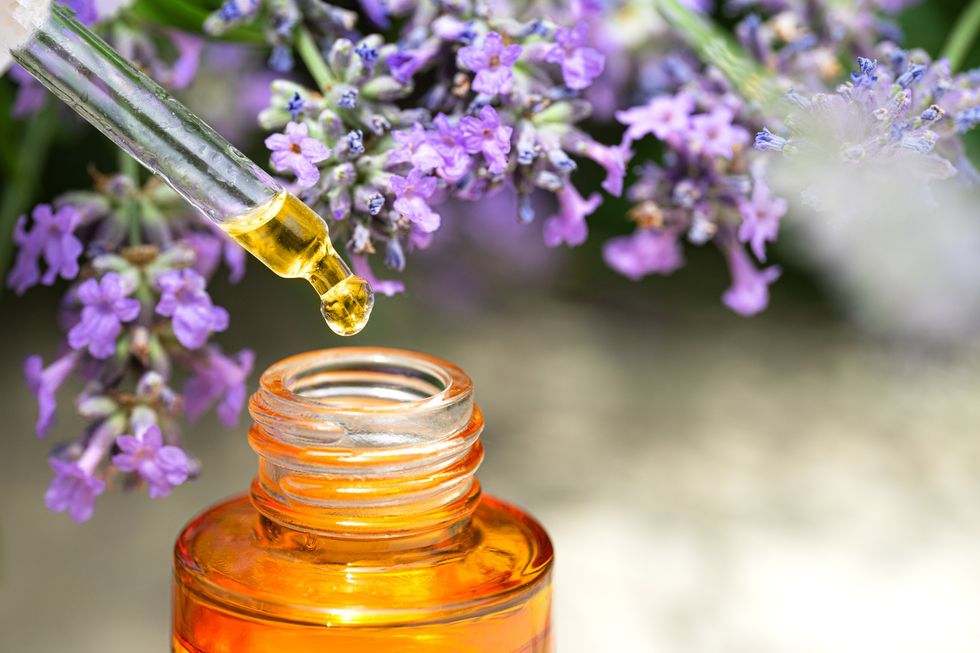
Getty Images
From an aromatherapy standpoint, lavender oil is one of the most popular ones when it comes to reducing anxiety and stress, promoting relaxation, and helping you to get a better night’s rest. Something else that might surprise you is there are studies to support that it can help to decrease symptoms that are associated with diabetes, plus it can help to soothe the discomfort that’s associated with having a headache.
Since it’s also a strong antifungal type of oil, you can also use lavender to help treat bacterial infections. When it’s a top ingredient in a homemade vaginal wash, it can help to get rid of the discharge that’s associated with common bacterial infections.
8. Tea Tree Oil for Yeast Infections
If you want a zit to go away, pretty much overnight, something that will do it is tea tree oil. What I especially like about it is the fact that although it’s potent as hell, it doesn’t dry out my skin (when I use it as a spot treatment) while it’s working. Some other benefits that come with it include the fact that its super potent (and I’m not exaggerating here) antibacterial, antifungal, and antioxidant properties also make it a top-notch when it comes to being a reliable ingredient for all-natural sanitizer, DIY deodorant, and getting rid of nail fungus.
It's also that one when it comes to treating yeast infections. That’s because its antimicrobial and antifungal properties help to prevent the overgrowth of yeast as well as bring relief when it comes to incessant itching and irritated vaginal and vulvar skin.
9. Thyme Oil Helps to Heal Candida Vaginitis
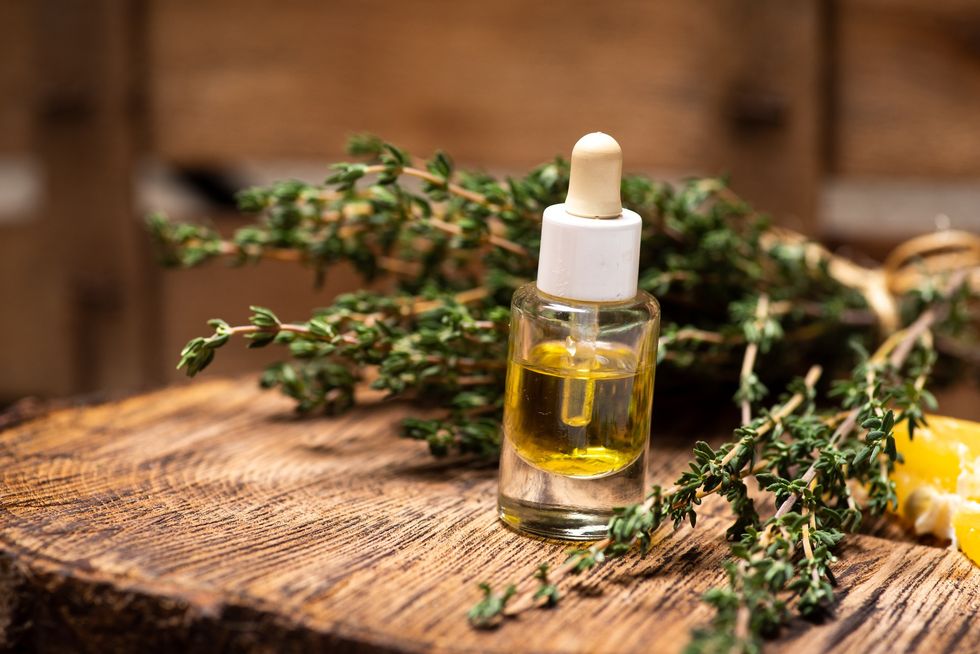
Getty Images
If you’re someone who likes to cook with fresh thyme, good for you because, whether you realize it or not, you’re doing some great things for your body. Due to the potent antifungal, anti-inflammatory, and antibacterial properties that are in thyme, it’s great at fighting breakouts, suppressing coughs, and helping your food last for longer periods of time. Since thyme is also high in vitamins A and C as well as copper, iron, and manganese, it’s a good idea to consume it if you’re looking to boost your immune system.
However, what trips me out the most about thyme/thyme oil is there is scientific intel to support that if you combine it with garlic, it’s just as effective as clotrimazole vaginal cream at treating candida vaginitis (vaginal irritation that has an overgrowth of candida in it). How freakin’ impressive is that?
10. Peppermint Oil Is a Vaginal pH Balancer
Let’s wrap this all up with peppermint oil. The menthol in this oil makes it a super bomb oil for treating bad breath. However, it’s also oftentimes used to speed up the healing process of the common cold, nausea, and migraine-related discomfort. Your scalp will also like peppermint because it can reduce itchiness and increase blood flow to your hair follicles which can increase hair growth. Plus, if you like to work out, it can soothe joint and muscle-related pain.
As far as your vagina goes, since peppermint oil acts as a powerful fungicide, it can keep your vagina at its proper pH balance (check out “Sis, This Is How To Keep Your Vagina's pH Balanced”); that’s because it kills harmful bacteria that can throw it off. It’s also an oil that can keep vaginal odor under control whether it’s during your cycle or not.
-----
There you have it — 10 essential oils that are great for when you’re on your cycle or if you want to keep common vaginal issues under control without the need for (a lot of) medication. Just make sure that you use it externally unless you run it by your physician first. Douching, even when it’s with an essential oil, can still do more harm than good, more times than not, because it can throw your vagina’s pH balance off — and that can cause all hell to break loose.
Also, make sure that you go with a reputable brand of essential oil (check out a list of them via The Spruce here). Believe you me, a lot of people give essential oils the side-eye, thinking that they’re not effective when really they just purchased a cheap (including cheap quality) brand.
Beyond all of this, ENJOY! Again, I can personally vouch for all of these and my vagina and vulvar have only been at (more) peace because of ‘em.
Let’s make things inbox official! Sign up for the xoNecole newsletter for daily love, wellness, career, and exclusive content delivered straight to your inbox.
Featured image by brizmaker/Getty Images




